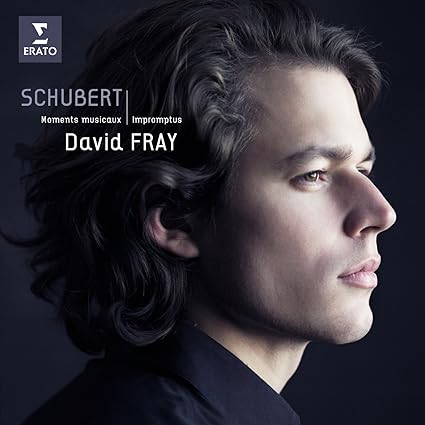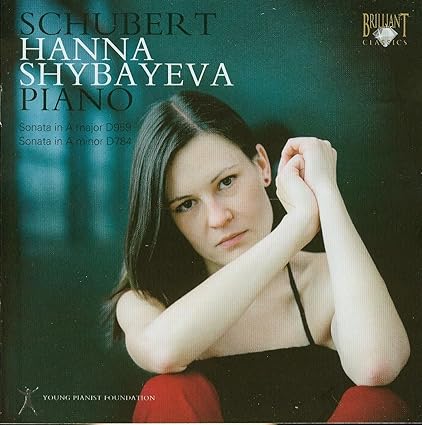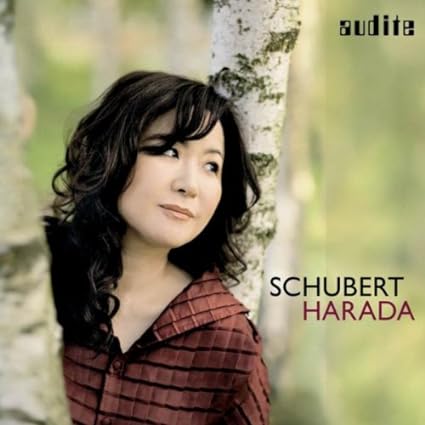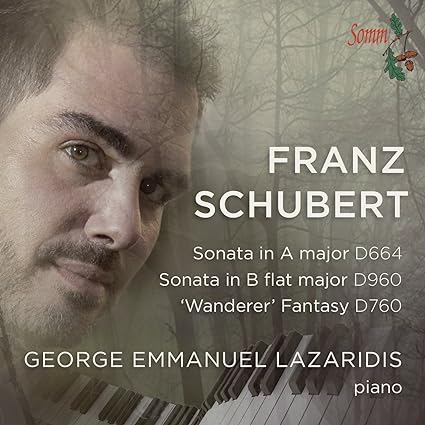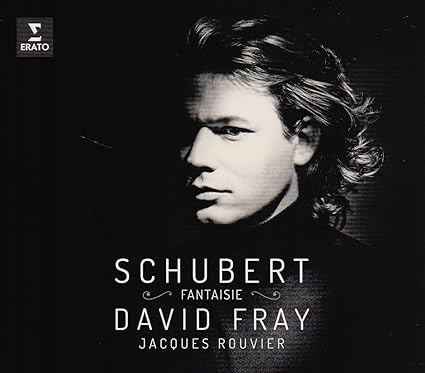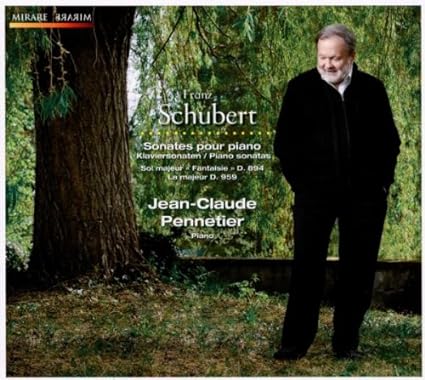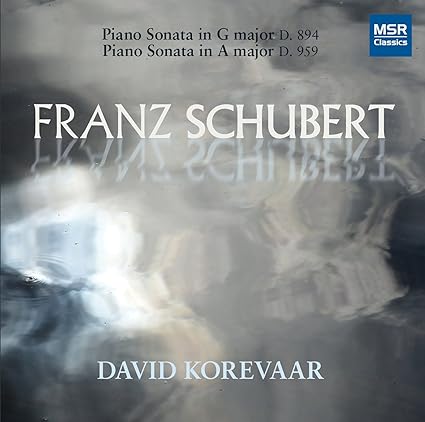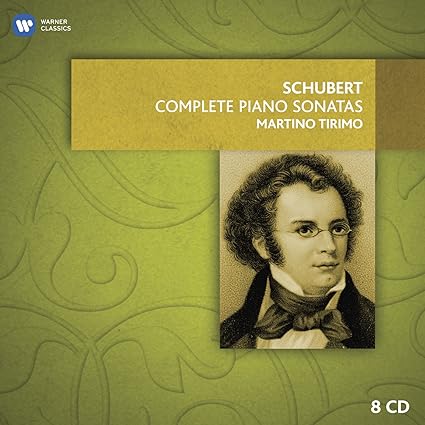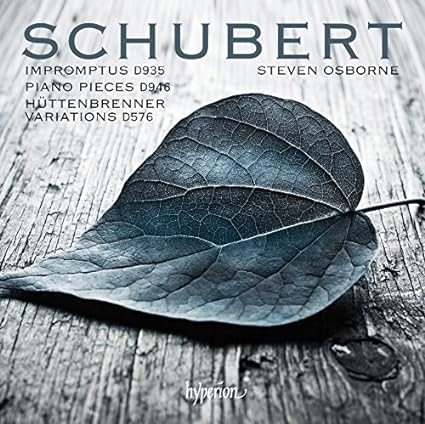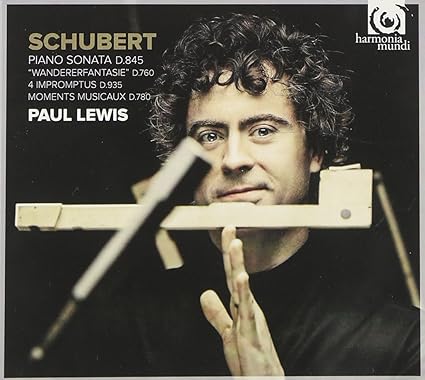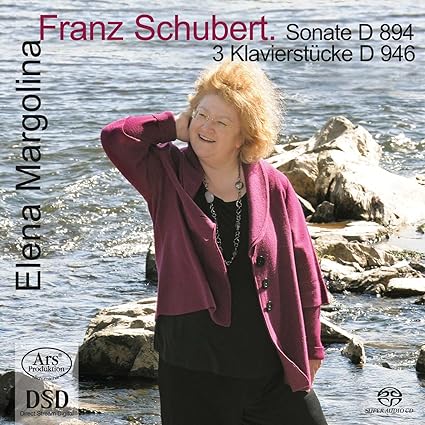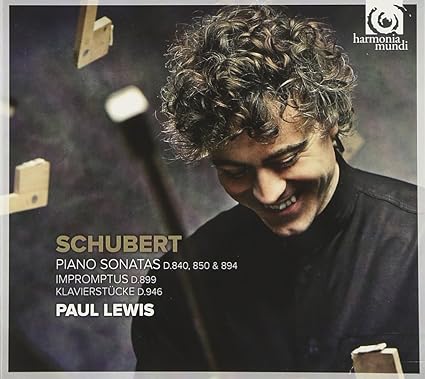Todd A
pfm Member
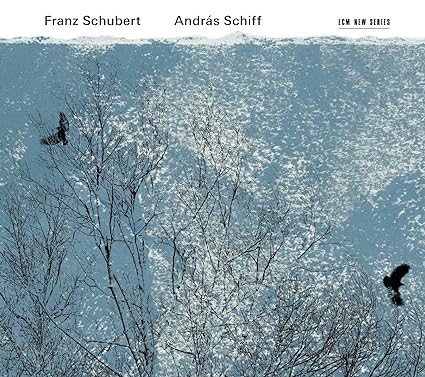
I do love me some Schubert solo piano music. After Beethoven and Debussy, Schubert is probably the composer I listen to most in the solo piano repertoire. The sonatas from D664 on, the Impromptus, the Wanderer Fantaisie, the Moments Musicaux: I love em all, and I always enjoy hearing both old favorites and new and, hopefully, fresh recordings. With Andras Schiffs new release of Schubert recorded on a fortepiano, I decided to buy not only his new disc Schiff releases are basically mandatory purchases for me but also to splurge and by a bunch of Schubert discs. As it happened, this splurge also overlapped with my Italian market release splurge in the form of Michail Lifits twofer including D845 and D894.
Schiff got the first spin. Schiffs Decca Schubert recordings are up there with the best to my ears, so when I saw that he recorded Schubert for ECM, I was most excited. So far, irrespective of repertoire, I prefer Schiffs ECM recordings to his earlier outings. Alas, these recordings are on fortepiano. Very few artists have been able to produce fortepiano recordings I really enjoy rather than endure. Paul Badura-Skoda and Penelope Crawford manage the feat in Beethoven, but Paul Badura-Skodas Schubert isnt my thing. Theres something about Schuberts writing that seems to beg for the longer sustain of a modern grand, for the beautiful legato that is possible. And Schiff is a proper pianist! Well, not really, not anymore. His last release of the Diabellis included a recording on the same 1820 Brodmann used here, so he is exploring new instruments. I generally do not read liner notes, but for this Schubert release he wrote an essay called Confessions of a Convert in which he expounds on why he now loves to perform on a fortepiano. He seems convinced, and it is reflected in the playing.
The set includes six works. The D817 Hungarian Melody gets things off to a good but not great start. Part of the issue is getting used to the sound. The Brodmann seems to produce no high treble at all. It produces a dull sound. However, the closely miked recording also reveals all manner of little details throughout. But the piece, not my favorite to begin with, never jells. Things pick up in D894. The instrument definitely lacks the power or sustain of a modern grand, but Schiff more than period specialists Ive heard, manages to play with a good amount of power where needed, and the instrument ends up being more about quiet playing, allowing for all manner of subtlety in the slow movement. Schiff is just the guy to bring it out. The Moments Musicaux that end the first disc ends up being the highlight of the set. The lack of sustain allows Schiff to play some passages with a soft bluntness, lending a darker hue at times, but he also manages to make some of the pieces sound quite lyrical, despite the instrument.
The second disc starts off with the D915 Allegretto, which sound just dandy, and then moves to the D935 Impromptus. Schiff manages much the same feat as with D780. The set ends with D960. Here the shortcomings of the instrument are inescapable in the opening movement, which sounds too small, and the bass trills, for the most part, too plain. That written, as the movement progresses, Schiff uses the ability of the piano to stop on a dime to good effect. The second movement sort of becomes the more intense center of the work. I write sort of because, while it does not become the center of the work, the Scherzo is one of the most amazing, mesmerizing takes Ive ever heard. I dont know if Schiff uses the moderator pedal throughout, or what else he may be doing, but the playing is gossamer light, swift, incredibly clear and well articulated, and just whizzes by. Its breathtaking and brilliant. The final movement is more earthbound but still more than excellent.
For me, with my limited exposure to HIP Schubert, Schiff now sets the standard, though there is no doubt that I prefer the sound of a modern grand and I will continue to listen to Schubert that way for the most part. This release does make me hope that Schiff revisits Mozart using the Brodmann, or perhaps some other period keyboard. Perhaps he can do there what he does here.
Sound is ECMs best.
Amazon UK link.
This site contains affiliate links for which pink fish media may be compensated.


